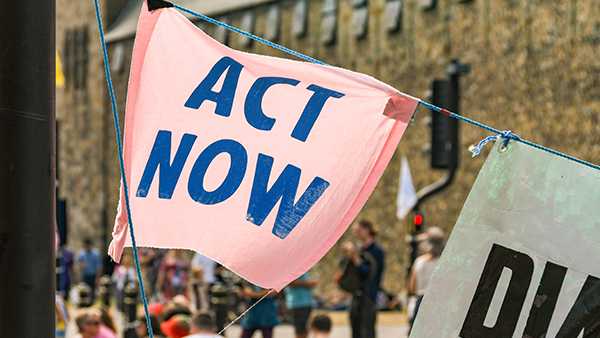The daily manoeuvring we are already seeing ahead of next year’s General Election can seem rather pointless. What has really changed in the polls in the last two years? Aren’t we continuing to meander towards another hung Parliament with the only unanswered question - which is to be the biggest Party - being ultimately resolved by a few thousand votes in a short list of marginal seats? Probably: but more in hope than expectation I’ll offer a way for things to become more interesting.
General Elections tend to be fought on three primary terrains: values, competence and future. Arguments about record and specific policies matter less for themselves than the degree to which they symbolise and reinforce these themes.
Labour is ahead on values, its traditional strong point; the Party scores relatively well on measures such as ‘speaks up for ordinary people’. The Conservative response is a sometimes uneasy mixture of appeal to people’s grievances about immigrants and those on benefits plus a quieter insistence that the Party continues to care about social mobility and poverty. Labour has tried to neutralise the first set of issues by sounding tough on claimants and immigration while choosing issues such as the bedroom tax to assert a value choice between the two largest Parties. The Lib Dems' favoured position is to share Labour’s critique of ‘uncaring’ Conservatives but also to claim to be free of the less popular baggage of the labour movement.
The Conservatives are ahead on competence. They will be disappointed that the economic pick-up does not yet seem to have turned this advantage into a deal-clincher with the electorate. Sooner or later the Tories will launch a huge attack on the ‘riskiness’ of a Miliband Government'. They will be hoping this has an effect as powerful as the 1991/2 attack on Neil Kinnock (they may even be tempted to update the famous ‘L’ plate poster).
Labour has being trying to improve its competence rating. Thus there have been pledges on spending and borrowing and steps to improve the quality of Labour’s front bench. One of the reasons Nick Clegg entered Government was to establish the Lib Dems as a serious Party of Government. So far this hasn’t worked out well in terms of popularity but I suspect Clegg and his team will be in a stronger position come election time, albeit having to deal with insistent questions about who their favoured post-election partner would be.
While on values or competence we are dealing with fairly predictable game plans, when it comes to ‘future’ we are still largely in the dark. The future pitch is not just, or even mainly, about promises or aspirations. To win ‘future’ a party has to predict tomorrow in a credible way which lodges the idea that only that party understands and is prepared for that future.
The lack of future narrative may partly betray the limited time horizons and ambitions of the parties but it is also a reflection of the tough period we have been living through. Until recently any attempt to mobilise a positive future vision would have been seen as irrelevant, complacent or both. But that is changing. 'Future' is now up for grabs, and unlike values and competence it is far from clear who will wrestle control.
Much though it interests me, it’s not my job as RSA CEO to speculate on political strategy or election outcomes. However, my analysis does offer an opportunity to wider civic society. Whilst there is little most of us can usefully do on values and competence other than reinforce various existing positions, when it comes to ‘future’ there is room for creativity, agenda-setting and new alliances.
To repeat, future is not just about aspirations. More interesting are scenarios; what do we think are the likely major trends that will shape the next ten years? And can we press the parties to start showing us they understand these trends, are prepared for them, and how they would seek to shape them? In short, which party seems to 'get the future' most convincingly.
For example, I have been writing quite a lot (here and here) about the trends making central Government less effective and blunting the tools of traditional policy making. Who has the best plan to deal with the decline of the centre? Population ageing is another key trend. We talk about the specifics of health and social care and universal benefits but what about the deeper demographic trend towards a society where there are many more older people, some more younger people and fewer in-between? What kind of society will and should this be? As long as a different hollowing out – of the middle of the labour market – continues tinkering with minimum wages and tax credits it is not likely to make any significant difference. Is this something we simply live with or is any party willing credibly to commit to restructure the labour market?
The widespread assumption a few decades ago that globalisation would lead to a homogenisation of domestic economic and social policy has been largely confounded. There are significant differences between countries and different routes to success and to ruin.
Let’s hope that, amidst the attacks and retail policy offers, the next few months also sees the emergence of something that resembles a debate about alternative strategies for Britain (assuming, that is, there still is a Britain). Even better would be if this was a debate (unlike 99% of party politics) where the parties might in some areas agree to differ and let voters make an informed choice from the futures on offer. If the RSA could play a part in hosting such a debate I’m sure we’d be up for it.
Related articles
-
The public are ready to go further and faster on net zero
Anthony Painter
The public are ahead of policy-makers and, indeed, most of the business world. COP26 is an enormous opportunity to catch up. Global leaders should take it.
-
Can progressives ever stop the in-fighting?
Matthew Taylor
Biden's victory has caused the left and moderates to fracture again.
-
Can President Biden bring America together again?
Anthony Painter
There is a long road ahead for the new president.




Be the first to write a comment
Comments
Please login to post a comment or reply
Don't have an account? Click here to register.